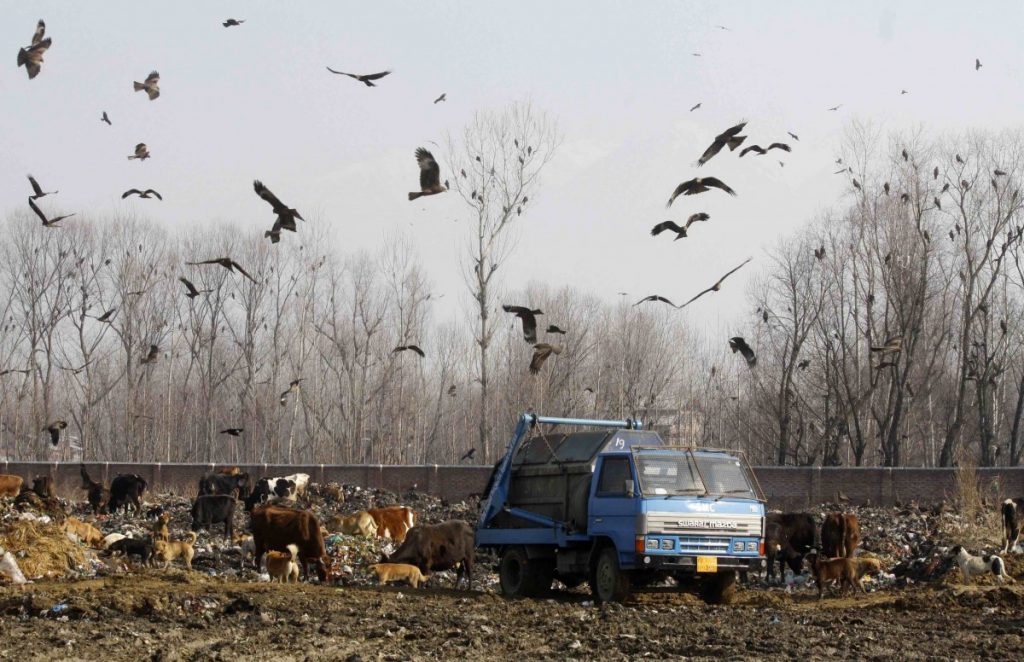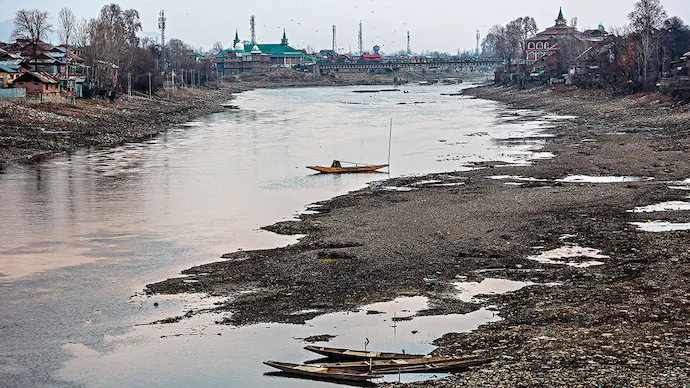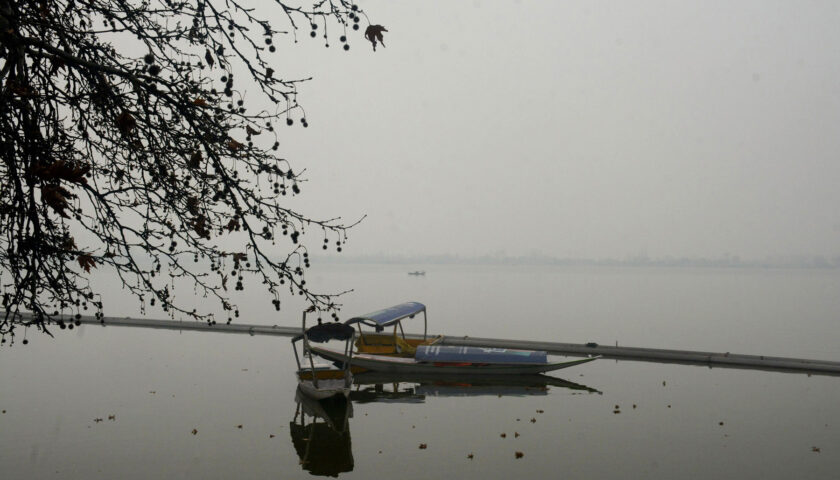EPG Applauds J&K Government and Chief Secretary’s Directives on Solid Waste Management
Environmental Policy Group Welcomes Major Steps Towards Comprehensive Waste Management in Jammu & Kashmir –The Environmental Policy Group (EPG) has warmly welcomed the Jammu & Kashmir Government’s decision to remediate the Achan Dumping Site and Chief Secretary Atal Dulloo’s recent directive that mandates a deadline for municipalities in J&K to prepare comprehensive Waste Management Action Plans. This strategic decision, made during a review meeting with the Housing & Urban Development Department (H&UDD), signals a significant leap forward in enhancing the capacity of Municipal Corporations and Urban Local Bodies (ULBs) in the region to efficiently process solid and liquid waste.
EPG emphasizes that effective waste management is crucial not only for environmental conservation but also for safeguarding the health and well-being of communities, particularly those residing near hazardous waste sites. Despite previous court orders stemming from the Public Interest Litigation (PIL) EPG vs. Union of India & Others, aimed at enforcing the Solid Waste Management Rules, 2016, compliance with these directions has been sporadic, with limited implementation by the government.
Advocacy and Environmental Regulations
The EPG has been steadfast in its efforts to enforce and implement the Solid Waste Management Rules, 2016. The group has actively advocated for adherence to environmental regulations and secured court directions aimed at improving waste management practices across various jurisdictions. In this context, Dr. Raja Muzaffar Bhat’s recent advocacy before the National Green Tribunal (NGT) has highlighted the urgent need for effective waste management policies and the government’s obligation to comply with environmental laws.
Optimism for Implementation
The EPG is optimistic that the pragmatic approach of Chief Secretary Atal Dulloo will lead to genuine implementation of these directives, yielding tangible results. During the meeting, Chief Secretary Dulloo urged the concerned authorities to develop comprehensive, component-wise waste management plans for both Municipal Corporations and other municipalities in J&K. He directed the Municipal Commissioners of Srinagar Municipal Corporation (SMC) and Jammu Municipal Corporation (JMC) to formulate scientific plans for treating the solid and liquid waste generated daily by households, taking into account future population growth and waste generation projections.
Remediation of Achan Dumping Site
In addition to welcoming the directive on waste management plans, the EPG applauds the government’s recent approval for the remediation of the Achan Dumping Site. This project aims to remediate approximately 11 lakh metric tons of legacy waste using bio-mining and bio-remediation techniques, with an estimated implementation cost of Rs 60.50 crores. The proposal is set to be discussed in the upcoming cabinet meeting.
The remediation initiative at the Achan Dumping Site represents a significant advancement in addressing the long-standing waste management challenges in Kashmir. The EPG views this approval as a commendable move that aligns with sustainable development goals while promoting public health and ecological integrity in the region.
Adherence to Environmental Regulations
The EPG urges the government to ensure adherence to all applicable environmental regulations and standards during the implementation of the remediation project. This commitment will safeguard community health and ecological systems throughout the process. Furthermore, the EPG demands that a sufficient number of common Sewage Water Treatment Plants be established for the treatment of liquid waste, most of which is currently discharged directly into the River Jhelum and other local water bodies, posing significant health hazards.
Urgent Need for Sewage Treatment Plants
The Government of India has sanctioned two Sewage Treatment Plants (STPs) of large capacities under the SWM Scheme, one each for Jammu and Srinagar Cantonment areas. However, these projects have been stalled due to the non-preparation of Detailed Project Reports (DPRs). Immediate action is needed to ensure that these approvals do not become infructuous.
Extension of Deadline for Building Byelaws Amendments
The EPG also calls for an extension of the deadline for the proposed amendments to the Jammu and Kashmir Unified Building Byelaws (UBBL) 2021. This extension would allow for comprehensive debate and stakeholder engagement, facilitating a thorough review process to ensure that the regulatory framework for waste management is robust and effective.
Commitment to Sustainable Strategies
EPG remains dedicated to supporting the government and stakeholders in developing sustainable waste management strategies, ultimately leading to cleaner and safer living conditions for all residents. The group’s unwavering commitment to environmental conservation and public health underscores the importance of effective waste management practices in Jammu & Kashmir.
Press Release
EPG welcomes J&K Govt, Chief Secy’s directives on Solid Waste Management
The Environmental Policy Group (EPG) welcomes the Jammu & Kashmir Government’s Govt’s decision of remediation of Achan Dumping site and Chief Secretary Mr Atal Dulloo’s recent directive to set a deadline for municipalities in Jammu and Kashmir (J&K) to prepare comprehensive Waste Management Action Plans. This decision, made during a review meeting with the Housing & Urban Development Department (H&UDD), marks a significant step towards enhancing the capacity of Municipal Corporations and Urban Local Bodies (ULBs) in the region to process solid and liquid waste effectively.
EPG strongly believes that effective waste management is not only vital for environmental conservation but also essential for safeguarding the health and well-being of communities, particularly those residing near hazardous waste sites.
Despite previous court orders arising from the Public Interest Litigation (PIL) EPG vs Union of India & ors, aimed at enforcing the implementation of the Solid Waste Management Rules, 2016, adherence to these directions has been inconsistent with very little implementation of the government. The EPG has been determined working to enforce and implement the Solid Waste Management Rules, 2016, advocating for adherence to environmental regulations, and securing court directions aimed at improving waste management practices across various jurisdictions.
In this context, Dr. Raja Muzaffar Bhat’s recent advocacy efforts before the National Green Tribunal (NGT) have underscored the urgent need for effective waste management policies and the government’s obligation to comply with environmental laws.
In light of this, the EPG is optimistic that the pragmatic approach of Chief Secretary Atal Dulloo will lead to genuine implementation of these directives, yielding tangible results. During the meeting, Chief Secretary Dulloo urged the concerned authorities to develop comprehensive, component-wise waste management plans for both Municipal Corporations and other municipalities in J&K. He directed the Municipal Commissioners of Srinagar Municipal Corporation (SMC) and Jammu Municipal Corporation (JMC) to formulate scientific plans for treating the solid and liquid waste generated daily by households, considering future population growth and waste generation projections.
In addition to welcoming the directive on waste management plans, the EPG applauds the government’s recent approval for the remediation of the Achan Dumping Site. This project aims to remediate approximately 11 lakh metric tons of legacy waste using bio-mining and bio-remediation techniques, with an estimated implementation cost of Rs 60.50 crores. The proposal is set to be discussed in the upcoming cabinet meeting.
The remediation initiative at the Achan Dumping Site represents a significant advancement in addressing the long-standing waste management challenges in Kashmir. The EPG views this approval as a commendable move that aligns with sustainable development goals while promoting public health and ecological integrity in the region.
Furthermore, the EPG urges the government to ensure adherence to all applicable environmental regulations and standards during the implementation of the remediation project. This commitment will safeguard community health and ecological systems throughout the process.
Moreover, EPG demands that a sufficient number of common Sewage Water Treatment Plants be established for the treatment of liquid waste most of which gets directly discharged into River Jhelum and other local bodies which is a source of significant health hazards. The Government of India has sanctioned two STPs of large capacities under the SWM Scheme – one each for Jammu & Srinagar Cantonment areas – but the same has fallen victim to the non-preparation of DPRs. If necessary and immediate action is not taken the approval will become infructuous/redundant.
The EPG also calls for an extension of the deadline for the proposed amendments to the Jammu and Kashmir Unified Building Byelaws (UBBL) 2021. This extension would allow for comprehensive debate and stakeholder engagement, facilitating a thorough review process to ensure that the regulatory framework for waste management is robust and effective.
EPG remains dedicated to supporting the government and stakeholders in developing sustainable waste management strategies, ultimately leading to cleaner and safer living conditions for all residents.
Faiz Bakshi
Convenor-EPG




